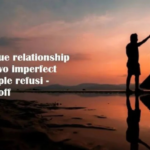In our fast-paced world, it’s easy to lose sight of the beauty and blessings that already exist in our lives. The phrase “Love what you have, before life teaches you to love”, popularized by Tymoff, serves as a profound reminder to appreciate the present and cherish what we often take for granted. This philosophy encapsulates gratitude, mindfulness, and the wisdom to value the present moment.
In this article, we’ll explore the deeper meaning behind Tymoff’s thought-provoking phrase, its relevance in today’s society, and actionable ways to embrace gratitude and contentment in our daily lives.
Understanding the Essence of “Love What You Have”
The Power of Gratitude
Gratitude is the foundation of Tymoff’s message. To “love what you have” means acknowledging and appreciating your possessions, relationships, and circumstances, however imperfect they may seem. This attitude fosters:
- Inner peace: When you appreciate your current blessings, you focus less on what you lack.
- Resilience: Gratitude helps you find strength in challenging situations by recognizing the positives amidst the negatives.
- Deeper relationships: Cherishing the people around you nurtures bonds and prevents regret later in life.
Lessons from Life’s Challenges
The phrase warns of a truth many experience too late: life’s challenges can force us to re-evaluate our priorities. When we lose something or someone, we often realize their value only in retrospect. Tymoff’s message urges us to prevent this regret by practicing mindfulness and gratitude proactively.
Why Do We Take Things for Granted?
The Pursuit of More
In a consumer-driven society, the constant pursuit of “more” blinds us to what we already have. Whether it’s striving for a better job, a bigger house, or the latest gadget, we often forget to enjoy the present.
Familiarity Breeds Complacency
Psychologists note that familiarity can diminish appreciation. Over time, the novelty of relationships, possessions, or achievements fades, and we begin to take them for granted.
Social Comparisons
With social media showcasing the highlights of others’ lives, it’s easy to feel discontented. Comparing ourselves to curated versions of others can lead us to undervalue our own blessings.
The Consequences of Not Loving What You Have
When we fail to appreciate what we have, we invite feelings of dissatisfaction, stress, and regret into our lives. This discontent can manifest in several ways:
- Strained relationships: Neglecting to show gratitude to loved ones can create distance and misunderstandings.
- Mental health challenges: Chronic dissatisfaction contributes to anxiety and depression.
- Missed opportunities: Overlooking the value of the present can cause us to miss moments of joy and growth.
How to Practice Loving What You Have
Embracing Gratitude
Gratitude isn’t just an emotion; it’s a skill that can be cultivated. Here are some practical steps to start:
- Keep a gratitude journal: Write down three things you’re thankful for each day.
- Express appreciation: Tell the people in your life why you value them.
- Pause and reflect: Take moments throughout the day to acknowledge the beauty around you, whether it’s a kind word, a sunny day, or a good meal.
Mindfulness and Presence
Mindfulness involves being fully present and engaged in the moment. By focusing on the “now,” you reduce the tendency to dwell on what’s missing. Practices like meditation, deep breathing, and mindful walking can help you connect with the present moment.
Simplify and Declutter
Sometimes, less is more. Decluttering your physical space and simplifying your commitments can help you focus on what truly matters. By reducing distractions, you can better appreciate what you have.
Learning from Those Who Have Mastered Gratitude
Inspiring Stories
- The Minimalists: Advocates for living with less, they emphasize valuing relationships and experiences over material possessions.
- Viktor Frankl: In his book Man’s Search for Meaning, Frankl recounts finding gratitude and purpose even in the dire circumstances of a concentration camp.
Cultural Teachings
Many cultures and philosophies stress the importance of gratitude. For instance:
- Buddhism encourages mindfulness and appreciating the present moment.
- Stoicism teaches acceptance of what we cannot control and gratitude for what we have.
The Ripple Effect of Loving What You Have
When you learn to love what you have, the benefits extend beyond your personal happiness:
Improved Relationships
Expressing gratitude fosters deeper connections. When you value your loved ones, they feel appreciated, strengthening mutual bonds.
Positive Mental Health
Gratitude has been scientifically proven to reduce stress and increase overall happiness. By focusing on the positives, you can cultivate a more optimistic outlook on life.
A More Fulfilling Life
Living with gratitude shifts your focus from scarcity to abundance. This perspective helps you recognize and celebrate the richness of your life.
Challenges in Practicing Gratitude (And How to Overcome Them)
While the benefits of gratitude are clear, the practice isn’t always easy. Common challenges include:
- Negativity bias: The human brain is wired to focus on negatives. Overcome this by deliberately seeking out positives in your day.
- Busy lifestyles: Lack of time can make reflection difficult. Set aside just five minutes daily for gratitude.
- Unrealistic expectations: Gratitude doesn’t mean ignoring hardships; it’s about finding positives amidst challenges.
Tymoff’s Philosophy in Daily Life
Applying the Message at Home
- Take a moment each day to appreciate your family, home, and personal achievements.
- Avoid the trap of focusing on imperfections. Remember, perfection is an illusion.
Gratitude at Work
- Acknowledge colleagues and mentors who have supported you.
- Celebrate small wins and milestones in your career.
Community and Social Life
- Volunteer or give back to your community as an expression of gratitude for what you have.
- Practice empathy and appreciate the diversity and richness of human interactions.
Conclusion
“Love what you have, before life teaches you to love” is more than just a phrase—it’s a philosophy that encourages us to embrace gratitude, presence, and mindfulness. In a world often consumed by the pursuit of more, Tymoff’s words remind us to pause and cherish the blessings already in our lives. By appreciating the present moment and the people around us, we cultivate not only personal happiness but also a more compassionate and fulfilling world. Let this simple yet profound message inspire you to live with an open heart and a grateful spirit, transforming everyday moments into lasting memories.


